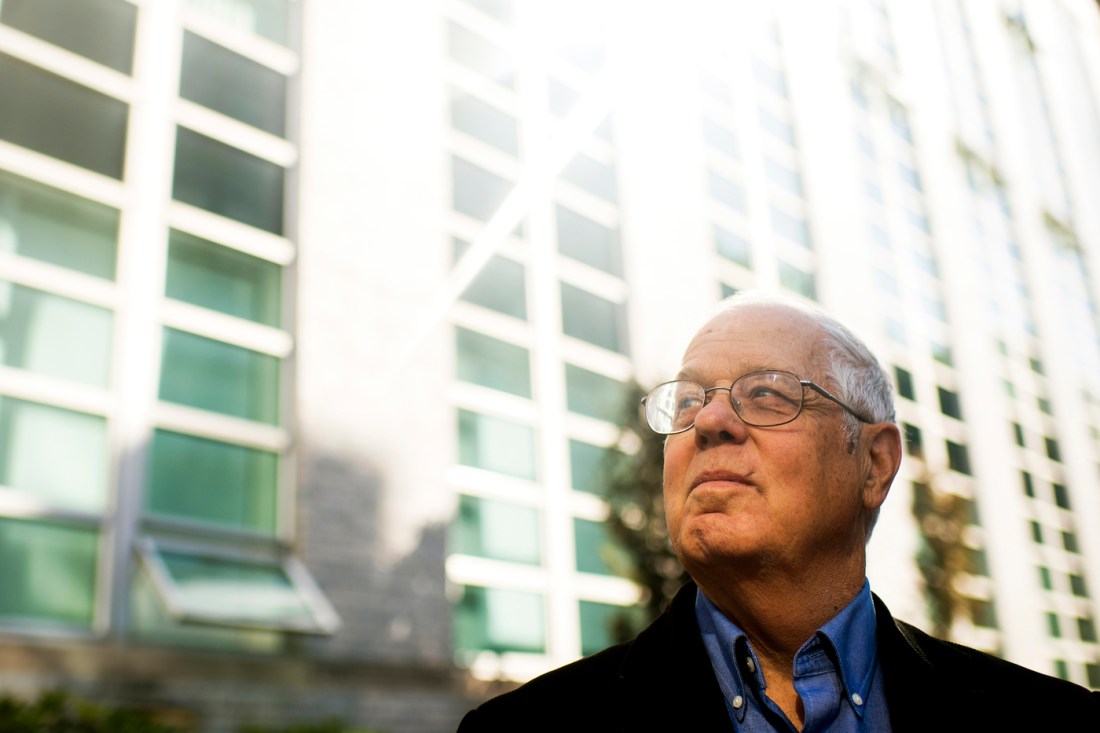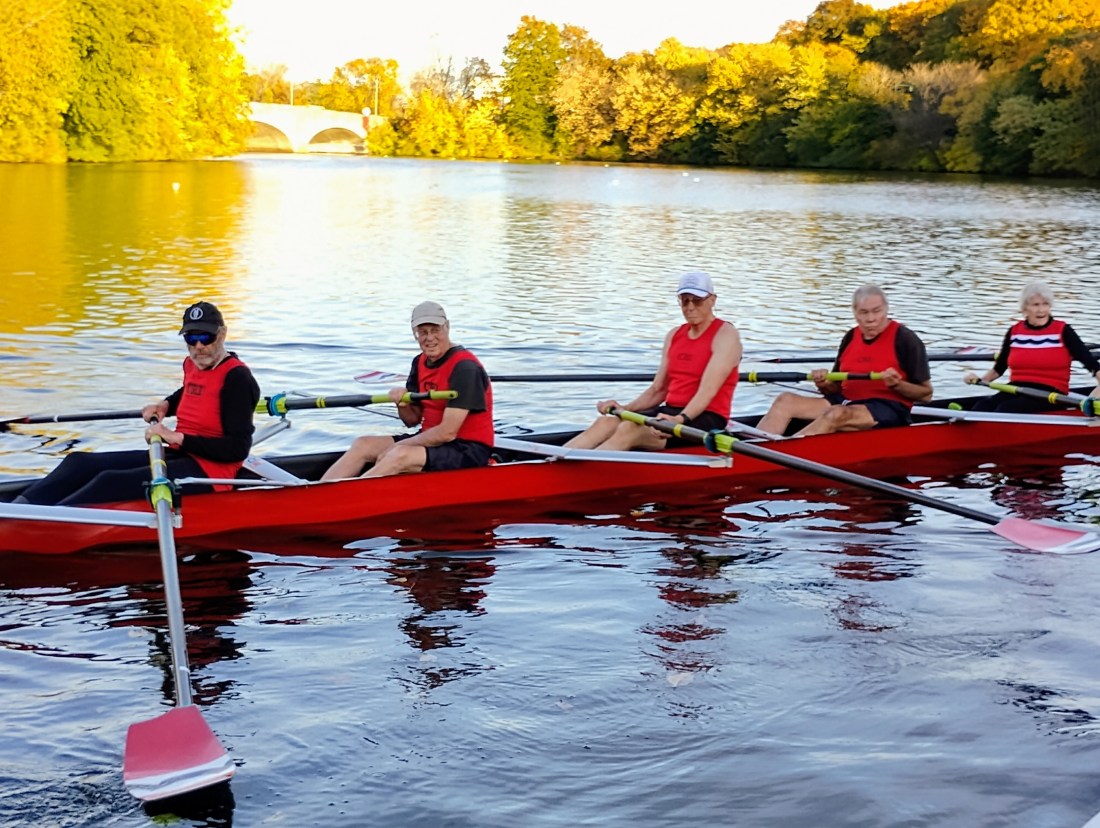Northeastern professor among crew of 80-year-olds who competed in the Head of the Charles Regatta
Edward Wertheim, a professor of management and organizational development, rowed with the Octogenarian 8, the only crew of 80-year-olds in the race.

In an event like the Head of the Charles Regatta with decorated Olympian rowers, elite boat clubs and the best collegiate teams, Northeastern University professor Edward Wertheim says his mixed eight crew of 80-year-olds faced a tough challenge.
“I was pleased,” says Wertheim, 80. “We’re not going to do it very quickly, but our focus is to row well.”
Wertheim says his crew gave it their all in the director’s challenge mixed gender eights race of the regatta in Boston as part of the only team of eight rowers in their 80s — the Octogenarian 8.
Despite their humble result — the Octogenarian 8 did not outperform their younger competitors — Wertheim says it was a good race.
As it goes in rowing, he says, “a bad race is no race at all.”
The Head of the Charles Regatta is the world’s biggest three-day rowing competition. It attracts more than 12,000 athletes from around the world and thousands of spectators. With 73 different race events, the regatta makes space for national boats as well as para-teams and rowers of different ages and skill levels.

Wertheim, Northeastern professor of management and organizational development, does not think of himself as an athlete. He says he was too short to have been considered for a college rowing team when he was younger.
He didn’t pick up rowing until he was about 40. One day he was driving down Soldier Fields Road in Boston, Wertheim says, and saw people gliding on the river.
“It looked beautiful,” he says. “I didn’t have a heavy teaching load in the summer, so I thought I’d give it a try.”
Wertheim trained at Community Rowing Inc. three mornings a week this summer leading up to the Head of the Charles as part of the recreational sweep rowing program.
Catherine Saarela, his coach at Community Rowing, the only public access rowing organization on the Charles River, had the idea of putting a boat of octogenarians together this year, and four of the team’s members were recruited from other rowing clubs.
“We’re in an eight with a coach, and we rotate, we do our own coxing, starting in April or May, whenever you can tolerate the cold,” he says.
Featured Posts
By September, Wertheim says, he and his teammates were rowing much better than they were in June.
Rowing is a wonderful way to stay in shape, Wertheim says. The sport relies on leg strength for pushing, doesn’t require a lot of twisting and is easy on the back. Over the decades of rowing, Wertheim has never been injured.
“It is beautiful being out there on the river,” he says. “You’re in the city, but the growth along the river edge is so thick you can’t see any cars, [as if] you’re in the country.”
This was Wertheim’s second time participating in the Head of the Charles.
The three-mile upstream race course contains six bridges and some sharp turns, making it challenging to navigate.
But their coxswain — a member of the crew who doesn’t row but looks ahead and directs the rowers — was excellent, Wertheim says.
“We’re rowing backwards, so the coxswain is the only one that steers the boat and sees where we’re going to make sure we don’t hit a bridge,” Wertheim says. “He was very encouraging.”

A coxswain can pick up particular problems, he says, such as oars digging too deeply. The coxswain can also help better synchronize the rowers or increase the number of strokes per minute.
“We did that in the middle of the race,” Wertheim says. “Went from 24 [strokes per minute]. We upped it a bit and were able to keep our technique.”
In a boat of eight, he says, rowers have to make tiny adjustments without communicating.
“When it works, well, it’s beautiful. When it doesn’t work, it’s not so much fun,” Wertheim says. “But when you’re finally having good strokes and you’re all in sync, and you’re moving the boat, it’s just a great feeling of a team working together.”
Wertheim’s wife and one of his Northeastern undergraduate students were cheering him on from the riverbank.
Many recreational rowers who train together become pretty good friends. Another Northeastern emeritus professor, Janet Randall, rowed alongside Wertheim this summer as well.
“She was too young to row with our boat [in the Head of the Charles Regatta], however,” Wertheim says.
“I encourage people to take it up. It’s a beautiful sport, and it’s a wonderful way to be outdoors and enjoy the Charles River, which is just a jewel that we have in Boston.”
Wertheim has been with Northeastern for 48 years. He teaches an elective course on negotiations that usually fills up very quickly, he says, because most people want to become better negotiators.
“I still get a big thrill when I enter that classroom,” Wertheim says.
It is great fun to watch students do mock negotiations, he says, as different students respond differently to negotiation role plays every semester.
“It’s just great fun to see what they’re going to do with it,” he says.





